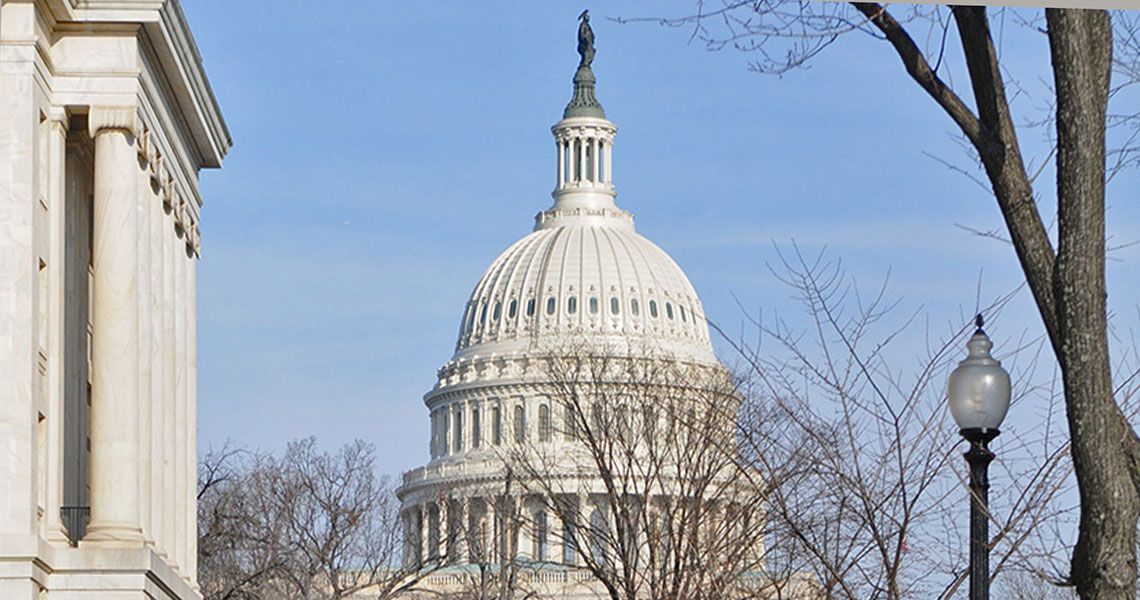Emergency medicine residents from the GW School of Medicine and Health Sciences (SMHS) were immersed in health policy and accompanying implications for clinical practice during the 16th Annual Health Policy Grand Rounds, held April 13.
“Too often, policymakers don’t have any [idea about] what happens in clinical practice, and vice versa, clinical practitioners don’t have any idea about what happens in policy,” explained Janice Blanchard, M.D., M.P.H., chief of the Section of Health Policy and associate professor of emergency medicine at SMHS. “The Health Policy Grand Rounds brings the two worlds together and helps us learn things that are impacting our everyday practice and what we can do to make a change.”
The day’s panel focused on the future of the Affordable Care Act, specifically aspects that could change after the 2016 election. Members of the panel, said Natalie Kirilichin, M.D., fellow at the Department of Emergency Medicine at SMHS, represented views across the political spectrum: Melanie Rainer, J.D., senior health counsel for the U.S. Senate Committee on Health, Education, Labor, and Pensions under Ranking Member Senator Patty Murray (D-WA), represented the left; moderate Republican Rodney Whitlock, Ph.D., vice president of health policy with government relations consulting firm ML Strategies, stood near the center; and Brian Blase, Ph.D., senior research fellow at Mercatus Center, George Mason University, represented the right.
“The great discussion about the Affordable Care Act allowed us, as physicians, to get a good view of its strengths and weakness,” said Todd Clark, M.D., fourth-year resident in the Department of Emergency Medicine at SMHS.
Clark has attended the Annual Health Policy Grand Rounds for all four years of his residency. This year, he said, the second speaker, Phil Ellis, Ph.D., senior analyst at the Congressional Budget Office (CBO), who detailed the costs of potential bills in “The Congressional Budget’s Analysis of Health Care Policy,” made the biggest impression. “I didn’t realize how constrained the CBO was in making its cost projections for preventive health legislation,” Clark said. “Unless the constraints on the way they calculate bills changes, proactive health legislation will be far more difficult to pass due to the scoring it will receive from CBO.”
The final speaker of the day, Peter Lurie, M.D., M.P.H., associate commissioner for public health strategy and analysis at the Food and Drug Administration, addressed the growing problem of prescription opioid misuse.
“Dr. Laurie tailored his discussion to our field and delivered some surprising statistics about where emergency medicine physicians fall on the spectrum of opioid prescribing,” Kirilichin said. “I think everyone thought we were worse off than we are, or at least a bigger contributor to the epidemic than we may be. That said, we still have a professional calling and an opportunity to be a big part of the solution.”
As a whole, the Health Policy Grand Rounds, one of the Department of Emergency Medicine’s longstanding programs, serves a vital function for residents.
“I think exposing everyone to these ideas, regardless of background, helps us, as physicians, have a broader perspective on the health delivery system and how it influences our ability to care for patients,” Clark said.
Additionally, the Department of Emergency Medicine offers monthly and quarterly didactic sessions, open to the medical school community. In the past, sessions have included discussions on the pros and cons of gun control, the public health impact of the legalization of marijuana, and the effect of retail clinics on emergency department visits, among other important topics. “We’ve had some pretty prominent people come and speak, and we do quite a bit in policy,” Blanchard said, adding that the department also visits the Baltimore Department of Public Health. “It definitely makes us unique as an emergency medicine department.”



